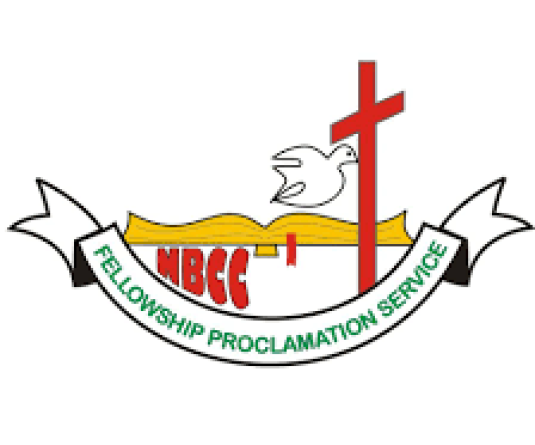
Vikiho Kiba
Few questions in Christian theology are as intellectually provocative or as pastorally pressing as this one: Did God decide who would be saved and who would be condemned before or after the Fall of Adam? This is the central concern of Lapsarianism, a theological framework that examines the logical order of God’s eternal decrees in relation to humanity’s fall into sin. Derived from the Latin lapsus, meaning “fall,” Lapsarianism has been most rigorously debated within Reformed and Calvinist traditions. Yet its implications resonate with any Christian community grappling with predestination, divine justice, and theodicy, including the vibrant Christian population of Nagaland.
At its heart, Lapsarianism is less concerned with chronological sequence than with logical priority. How does God’s will relate to the Fall? Does divine election precede sin, or does it respond to a fallen world? For Naga Christians, who navigate a dynamic interplay between traditional cultural values and deep biblical faith, these questions carry both theological and existential weight. They shape understandings of God’s sovereignty, human responsibility, and the nature of grace in communities where faith is lived amidst social, economic, and spiritual challenges.
Supralapsarianism: Election Before the Fall. Supralapsarianism, often described as “before the fall,” is one of the most rigorous expressions of Lapsarian thought. In this view, God’s decree to elect some for salvation and reprobate others logically precedes the Fall of humanity. Creation, the Fall, and redemption are subsequently ordered according to this ultimate purpose. The emphasis is clear: God’s sovereignty is absolute, and salvation is entirely an act of divine grace, independent of human action. Supralapsarianism portrays a God whose eternal plan is comprehensive and decisive, with creation and redemption revolving around divine purpose.
For Naga Christians, who reflect deeply on the relationship between communal values, ancestral traditions, and faith, this perspective underscores the depth of God’s sovereignty. It challenges believers to trust that even the complexities of social and cultural life fall under God’s providential care. Yet the view also raises tension. Critics argue that positioning reprobation before sin risks portraying God as arbitrary or even as the source of evil, a perception that has fueled theological debate for centuries. Supralapsarianism invites Naga Christians to wrestle with the mystery of a God who ordains history while remaining perfectly just and holy.
Infralapsarianism: Election After the Fall. By contrast, Infralapsarianism, often termed “after the fall,” situates election after humanity has fallen. Here, God first creates humanity and permits the Fall; only afterward does He elect some for salvation while leaving others in their sin, providing redemption for the elect through Christ.
This approach balances divine sovereignty with human responsibility. All humans are equally fallen, and God’s election responds to a sinful reality rather than causing it. For Naga Christians, who value communal accountability and personal integrity, infralapsarianism resonates with lived experience: salvation is offered to those who respond in faith, while God’s justice remains evident. Ethically and pastorally, it presents a God whose mercy is freely extended, emphasizing grace for those who cannot claim it, without undermining His ultimate authority.
Amyraldianism: Universal Intent with Particular Application. A related perspective, Amyraldianism, developed by 17th-century theologian Moise Amyraut, seeks to reconcile God’s universal love with the particularity of election. In this framework, God creates humanity and permits the Fall, Christ dies for all, and only those who believe are elected to receive salvation.
Here, Christ’s atonement is universal in intent but particular in effect. Salvation is genuinely offered to all, yet effective only for the elect. Amyraldianism emphasizes God’s mercy while affirming the reality of election, making it especially relevant for Naga Christians, where evangelistic outreach, preaching Christ across villages and towns, intersects with the recognition of God’s sovereign choice in drawing hearts to faith.
Why Lapsarianism Matters in the Naga Context. At first glance, debates over the logical order of divine decrees may seem abstract. Yet they engage with pressing, lived realities for Naga Christians: How can God be both sovereign and just amid social inequalities? How does predestination relate to personal and communal responsibility? How do we understand grace in a world shaped by both tradition and modern challenges?
Lapsarian frameworks provide intellectual and spiritual tools for navigating these questions. They help believers reconcile the tension between divine control and human freedom, illuminate the mystery of Christ’s atonement, and deepen understanding of God’s justice and mercy. In a context where faith is interwoven with daily life, Lapsarian thought equips pastors, educators, and lay believers to teach, preach, and live with confidence in God’s eternal plan.
Conclusion: Lapsarianism, whether supralapsarian, infralapsarian, or Amyraldian, is an attempt to map God’s eternal plan, not in chronological time but in logical order. It invites believers to ponder profound questions: How does God’s sovereignty operate in a fallen world? How does grace reach the elect? How does divine justice coexist with human freedom?
For Naga Christians, Lapsarianism is more than doctrine; it is a lens through which to understand the interplay of sin, grace, and redemption in both personal and communal life. It offers intellectual clarity and spiritual insight, guiding believers to trust God’s providence amid the joys, struggles, and complexities of everyday life in Nagaland.




.jpg)
.jpg)
